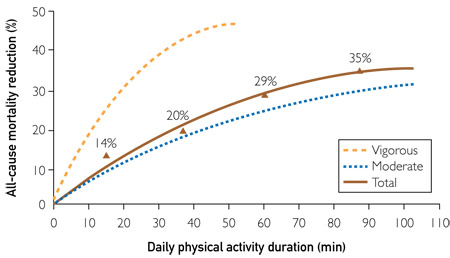Is Running Bad For You?

Many individuals use running as a means to quickly burn calories, tone leg muscles, and relieve stress. It is possible that these individuals may be receiving too much of a good thing. There are two main areas of concern for runners, the effects of repetitive impact (especially on the knees, hips, and spine) as well as how long-term endurance running can affect the heart. These effects are most often felt by runners that train for extreme conditions like marathons or iron-man competitions. Of course there are other opportunities (pulled muscle or strained ankle) for injury but these are often temporary and do not turn into chronic issues
Running's repetitive impact
The impact of the feet hitting a hard surface over and over can lead to inflammation or degeneration in the knees, hips, or spine. If one is experiencing inflammation, then it is most likely to be tendonitis. If there is no inflammation, then the cause is most likely degeneration of the tendon (tendinosis). An individuals body type can also affect joint health, those with an ectomorph body type (slender), are less likely to experience joint pain while a mesomorph or endomorph may be more prone to inflammation. Runners that perform their task on a treadmill often experience less ground impact than those who run outdoors. These points are often argued without a clear winner but it is not uncommon for someone who is not accustomed to running to experience temporary pain or swelling in the joint areas.
A great way to combat inflammation is finding the best running shoes for an individuals needs. An NSAID (non-steroidal anti-inflammatory drug) may also be used to reduce the inflammation and pain at the initial onset of getting back into shape but should not be used as a long-term solution.
Heart health and running
The cardiovascular benefits of running regularly are vast but too much running may actually lead to conditions such as coronary artery calcification, diastolic dysfunction, and large-artery wall stiffening. Extremely long distance training (running periods over 60 minutes) can also show temporary spikes in heart inflammation, why may lead to permanent scarring or ventricle damage. Arrhythmia or even sudden death can occur in rare cases.
The overall conclusion
The answer to the question of "Is Running Bad For You?" is yes, it can be bad for you; but please bear in mind that these heart symptoms occurred in runners who regularly endured hours of strenuous running. According to the Mayo Clinic study, 'people who exercise regularly have markedly lower rates of disability and a mean life expectancy that is 7 years longer than that of their physically inactive contemporaries. However, a safe upper-dose limit potentially exists, beyond which the adverse effects of exercise may outweigh its benefits1'. Basically, keep the running to less than 60 minutes per day and you should be doing more good than bad. Remember, this is solely distinctive of running; exercises like weight lifting should not have an effect on the heart because the demand is not as high or continuous.
 Relationship between dose of physical activity and reduction in all-cause mortality. The mortality benefits of exercise appear with even small amounts of daily exercise and peak at 50 to 60 minutes of vigorous exercise per day.1
Relationship between dose of physical activity and reduction in all-cause mortality. The mortality benefits of exercise appear with even small amounts of daily exercise and peak at 50 to 60 minutes of vigorous exercise per day.1
The ideal amount of a strenuous physical activity like running is right around 50 minutes. After that, the point of diminishing returns is reached and it can become harmful to continue the activity. A moderate activity like walking can be performed for much longer before reaching a plateau.
Sources:
1Potential Adverse Cardiovascular Effects From Excessive Endurance Exercise - http://www.mayoclinicproceedings.org/article/S0025-6196%2812%2900473-9/abstract




